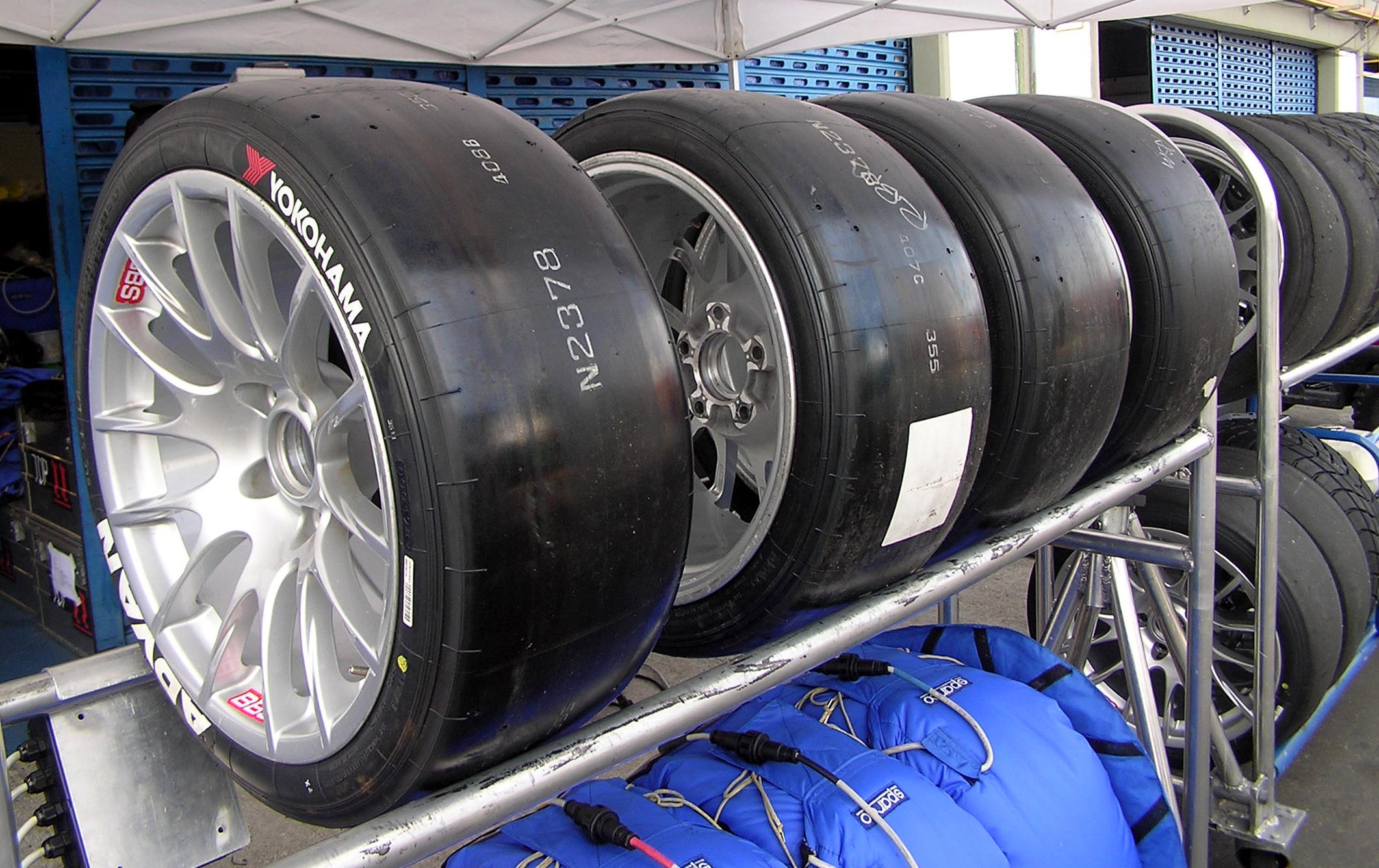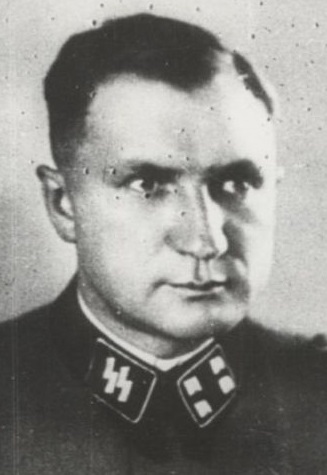|
Carl Krauch
Carl Krauch (7 April 1887 – 3 February 1968) was a German chemist, industrialist and Nazi war criminal. He was an executive at BASF (later IG Farben); during World War II, he was chairman of the supervisory board. He was a key implementer of the Reich’s Four-Year Plan to achieve national economic self-sufficiency and promote industrial production. He was Plenipotentiary of Special Issues in Chemical Production, a senator of the Kaiser Wilhelm Society, and an honorary professor at the University of Berlin. He was convicted in the IG Farben trial after World War II and sentenced to six years in prison. Education From 1906 to 1912, Krauch studied at the '' Justus Liebig-Universität Gießen'' and the ''Ruprecht-Karls-Universität Heidelberg''. From 1911 to 1912, he was an unpaid teaching assistant to R. Stallé at Heidelberg. He received his doctorate in 1912 under Theodor Curtius at Heidelberg.Hentschel and Hentschel, 1996, Appendix F; see the entry for Krauch. Career From 1 ... [...More Info...] [...Related Items...] OR: [Wikipedia] [Google] [Baidu] |
Karl Krauch
Karl may refer to: People * Karl (given name), including a list of people and characters with the name * Karl der Große, commonly known in English as Charlemagne * Karl Marx, German philosopher and political writer * Karl of Austria, last Austrian Emperor * Karl (footballer) (born 1993), Karl Cachoeira Della Vedova Júnior, Brazilian footballer In myth * Karl (mythology), in Norse mythology, a son of Rig and considered the progenitor of peasants (churl) * ''Karl'', giant in Icelandic myth, associated with Drangey island Vehicles * Opel Karl, a car * ST ''Karl'', Swedish tugboat requisitioned during the Second World War as ST ''Empire Henchman'' Other uses * Karl, Germany, municipality in Rhineland-Palatinate, Germany * ''Karl-Gerät'', AKA Mörser Karl, 600mm German mortar used in the Second World War * KARL project, an open source knowledge management system * Korean Amateur Radio League, a national non-profit organization for amateur radio enthusiasts in South Korea * KARL, ... [...More Info...] [...Related Items...] OR: [Wikipedia] [Google] [Baidu] |
Nazi Party
The Nazi Party, officially the National Socialist German Workers' Party (german: Nationalsozialistische Deutsche Arbeiterpartei or NSDAP), was a far-right politics, far-right political party in Germany active between 1920 and 1945 that created and supported the ideology of Nazism. Its precursor, the German Workers' Party (; DAP), existed from 1919 to 1920. The Nazi Party emerged from the Extremism, extremist German nationalism, German nationalist, racism, racist and populism, populist paramilitary culture, which fought against the communism, communist uprisings in post–World War I Germany. The party was created to draw workers away from communism and into nationalism. Initially, Nazi political strategy focused on anti–big business, anti-bourgeoisie, bourgeois, and anti-capitalism, anti-capitalist rhetoric. This was later downplayed to gain the support of business leaders, and in the 1930s, the party's main focus shifted to Antisemitism, antisemitic and Criticism of ... [...More Info...] [...Related Items...] OR: [Wikipedia] [Google] [Baidu] |
1887 Births
Events January–March * January 11 – Louis Pasteur's anti-rabies treatment is defended in the Académie Nationale de Médecine, by Dr. Joseph Grancher. * January 20 ** The United States Senate allows the Navy to lease Pearl Harbor as a naval base. ** British emigrant ship ''Kapunda'' sinks after a collision off the coast of Brazil, killing 303 with only 16 survivors. * January 21 ** The Amateur Athletic Union (AAU) is formed in the United States. ** Brisbane receives a one-day rainfall of (a record for any Australian capital city). * January 24 – Battle of Dogali: Abyssinian troops defeat the Italians. * January 28 ** In a snowstorm at Fort Keogh, Montana, the largest snowflakes on record are reported. They are wide and thick. ** Construction work begins on the foundations of the Eiffel Tower in Paris, France. * February 2 – The first Groundhog Day is observed in Punxsutawney, Pennsylvania. * February 4 – The Interstate Commerce Act ... [...More Info...] [...Related Items...] OR: [Wikipedia] [Google] [Baidu] |
Klaus Hentschel
Klaus Hentschel (born 4 April 1961) is a German physicist, historian of science and Professor and head of the History of Science and Technology section in the History Department of the University of Stuttgart. He is known for his contributions in the field of the history of science. Life and work Born in Bad Nauheim, Hentschel from 1979 to 1985 studied physics, philosophy, science, history and musicology at the University of Hamburg. He completed his studies in philosophy in 1985 with the master's examination, and a study in physics in 1987. After some studies in the United States, among others in Boston on a DAAD, he in 1989 received his PhD at the University of Hamburg. His thesis was entitled "Interpretationen und Fehlinterpretationen der speziellen und der allgemeinen Relativitätstheorie durch Zeitgenossen Albert Einsteins" (Interpretations and misinterpretations of the special and general relativity theory by Albert Einstein's contemporaries). After graduation Hentschel ... [...More Info...] [...Related Items...] OR: [Wikipedia] [Google] [Baidu] |
Hentschel, Klaus
Klaus Hentschel (born 4 April 1961) is a German physicist, historian of science and Professor and head of the History of Science and Technology section in the History Department of the University of Stuttgart. He is known for his contributions in the field of the history of science. Life and work Born in Bad Nauheim, Hentschel from 1979 to 1985 studied physics, philosophy, science, history and musicology at the University of Hamburg. He completed his studies in philosophy in 1985 with the master's examination, and a study in physics in 1987. After some studies in the United States, among others in Boston on a DAAD, he in 1989 received his PhD at the University of Hamburg. His thesis was entitled "Interpretationen und Fehlinterpretationen der speziellen und der allgemeinen Relativitätstheorie durch Zeitgenossen Albert Einsteins" (Interpretations and misinterpretations of the special and general relativity theory by Albert Einstein's contemporaries). After graduation Hentschel ... [...More Info...] [...Related Items...] OR: [Wikipedia] [Google] [Baidu] |
Butadiene Rubber
Polybutadiene utadiene rubber BRis a synthetic rubber. Polybutadiene rubber is a polymer formed from the polymerization of the monomer 1,3-butadiene. Polybutadiene has a high resistance to wear and is used especially in the manufacture of tires, which consumes about 70% of the production. Another 25% is used as an additive to improve the toughness (impact resistance) of plastics such as polystyrene and acrylonitrile butadiene styrene (ABS). Polybutadiene rubber accounted for about a quarter of total global consumption of synthetic rubbers in 2012. It is also used to manufacture golf balls, various elastic objects and to coat or encapsulate electronic assemblies, offering high electrical resistivity. The IUPAC refers to polybutadiene as poly (buta-1,3-diene). Buna rubber is a term used to describe an early generation of synthetic polybutadiene rubber produced in Germany by Bayer using sodium as a catalyst. History The Russian chemist Sergei Vasilyevich Lebedev was t ... [...More Info...] [...Related Items...] OR: [Wikipedia] [Google] [Baidu] |
Synthetic Fuel
Synthetic fuel or synfuel is a liquid fuel, or sometimes gaseous fuel, obtained from syngas, a mixture of carbon monoxide and hydrogen, in which the syngas was derived from gasification of solid feedstocks such as coal or biomass or by reforming of natural gas. Common ways for refining synthetic fuels include the Fischer–Tropsch conversion, methanol to gasoline conversion, or direct coal liquefaction. Classification and principles The term 'synthetic fuel' or 'synfuel' has several different meanings and it may include different types of fuels. More traditional definitions define 'synthetic fuel' or 'synfuel' as any liquid fuel obtained from coal or natural gas. In its Annual Energy Outlook 2006, the Energy Information Administration defines synthetic fuels as fuels produced from coal, natural gas, or biomass feedstocks through chemical conversion into synthetic crude and/or synthetic liquid products. A number of synthetic fuel's definitions include fuels produced from bi ... [...More Info...] [...Related Items...] OR: [Wikipedia] [Google] [Baidu] |
Monowitz
Monowitz (also known as Monowitz-Buna, Buna and Auschwitz III) was a Nazi concentration camp and labor camp (''Arbeitslager'') run by Nazi Germany in occupied Poland from 1942–1945, during World War II and the Holocaust. For most of its existence, Monowitz was a subcamp of the Auschwitz concentration camp; from November 1943 it and other Nazi subcamps in the area were jointly known as "Auschwitz III-subcamps" (''KL Auschwitz III-Aussenlager''). In November 1944 the Germans renamed it Monowitz concentration camp, after the village of Monowice (German: Monowitz) where it was built, in the annexed portion of Poland. SS Hauptsturmführer (Captain) Heinrich Schwarz was commandant from November 1943 to January 1945. The SS established the camp in October 1942 at the behest of IG Farben executives to provide slave labor for their Buna Werke (Buna Works) industrial complex. The name ''Buna'' was derived from the butadiene-based synthetic rubber and the chemical symbol for sodium (Na), ... [...More Info...] [...Related Items...] OR: [Wikipedia] [Google] [Baidu] |
Frankfurt Auschwitz Trials
The Frankfurt Auschwitz trials, known in German as ''der Auschwitz-Prozess'', or ''der zweite Auschwitz-Prozess,'' (the "second Auschwitz trial") was a series of trials running from 20 December 1963 to 19 August 1965, charging 22 defendants under German criminal law for their roles in the Holocaust as mid- to lower-level officials in the Auschwitz-Birkenau death and concentration camp complex. Hans Hofmeyer led as Chief Judge the "criminal case against Mulka and others" (reference number 4 Ks 3/63). Overall, only 789 individuals of the approximately 8,200 surviving ''SS'' personnel who served at Auschwitz and its sub-camps were ever tried, of whom 750 received sentences. Unlike the first trial in Poland held almost two decades earlier, the trials in Frankfurt were not based on the legal definition of crimes against humanity as recognized by international law, but according to the state laws of the Federal Republic. Prior trial in Poland Most of the senior leaders of the c ... [...More Info...] [...Related Items...] OR: [Wikipedia] [Google] [Baidu] |
Concentration Camp
Internment is the imprisonment of people, commonly in large groups, without charges or intent to file charges. The term is especially used for the confinement "of enemy citizens in wartime or of terrorism suspects". Thus, while it can simply mean imprisonment, it tends to refer to preventive confinement rather than confinement ''after'' having been convicted of some crime. Use of these terms is subject to debate and political sensitivities. The word ''internment'' is also occasionally used to describe a neutral country's practice of detaining belligerent armed forces and equipment on its territory during times of war, under the Hague Convention of 1907. Interned persons may be held in prisons or in facilities known as internment camps (also known as concentration camps). The term ''concentration camp'' originates from the Spanish–Cuban Ten Years' War when Spanish forces detained Cuban civilians in camps in order to more easily combat guerrilla forces. Over the following ... [...More Info...] [...Related Items...] OR: [Wikipedia] [Google] [Baidu] |
Crimes Against Humanity
Crimes against humanity are widespread or systemic acts committed by or on behalf of a ''de facto'' authority, usually a state, that grossly violate human rights. Unlike war crimes, crimes against humanity do not have to take place within the context of war, and apply to widespread practices rather than acts committed by individuals. Although crimes against humanity apply to acts committed by or on behalf of authorities, they need not be official policy, and require only tolerance rather than explicit approval. The first prosecution for crimes against humanity took place at the Nuremberg trials. Initially being considered for legal use, widely in international law, following the Holocaust a global standard of human rights was articulated in the Universal Declaration of Human Rights (1948). Political groups or states that violate or incite violation of human rights norms, as found in the Declaration, are an expression of the political pathologies associated with crimes against hu ... [...More Info...] [...Related Items...] OR: [Wikipedia] [Google] [Baidu] |








